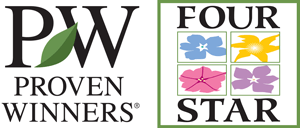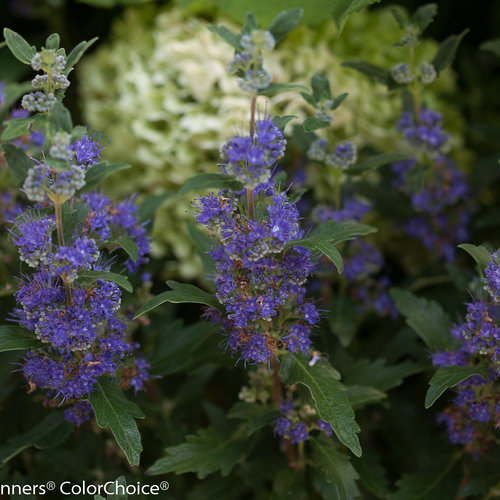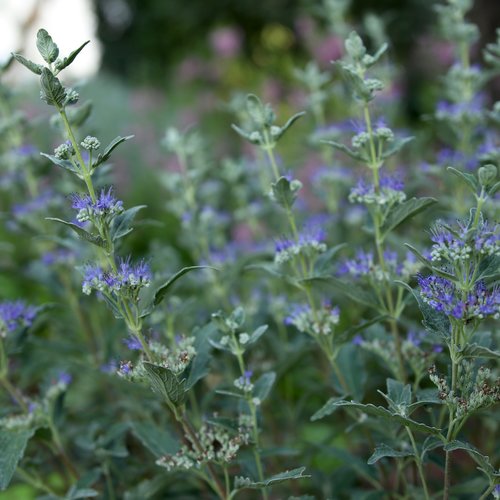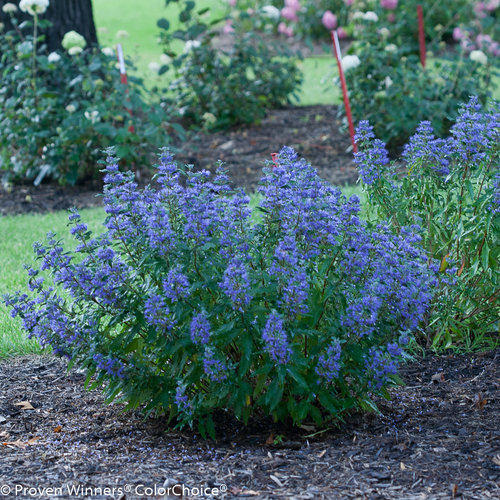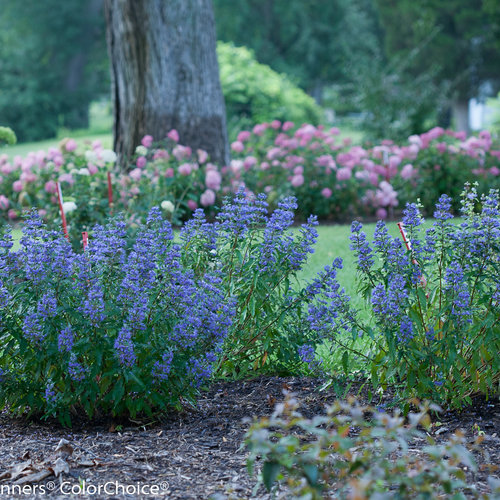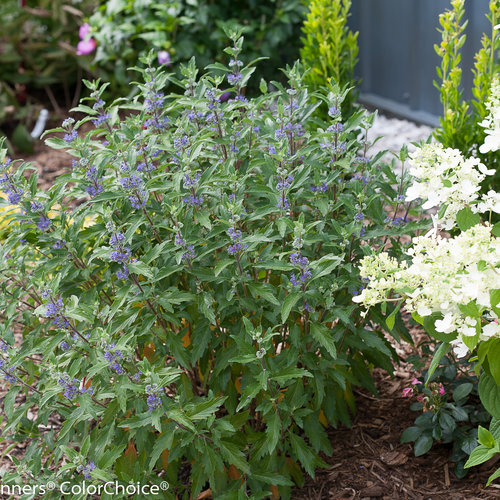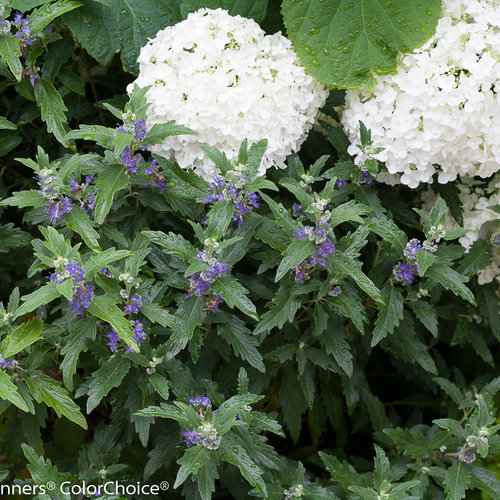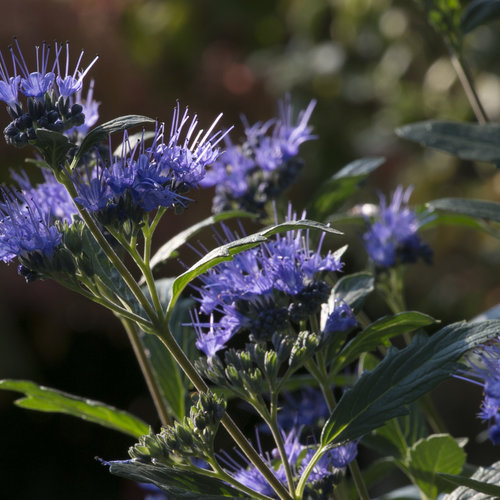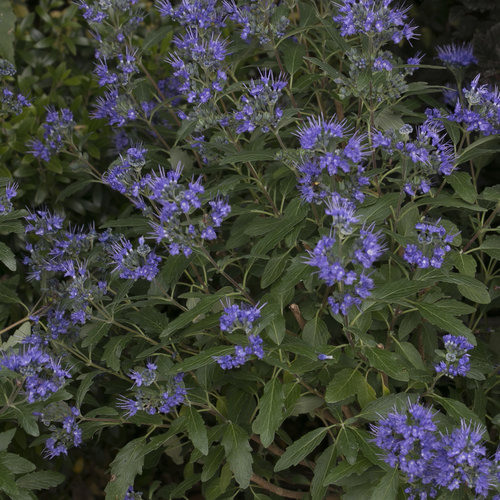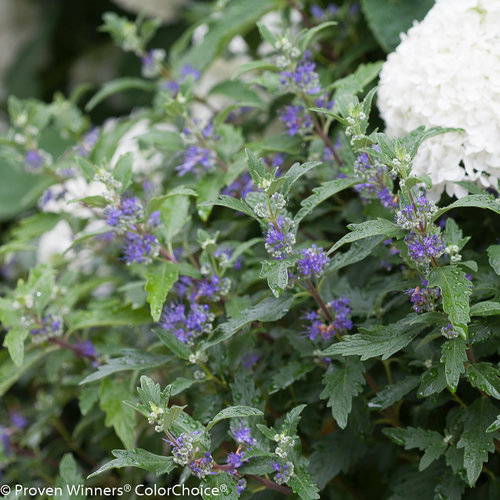Plantinformation
HOME OF PROVEN WINNERS®
Plant Information
Beyond Midnight®
Caryopteris
Dark, glossy foliage and rich blue flowers in a compact habit. It attracts bees, butterflies and hummingbirds while also being deer resistant.
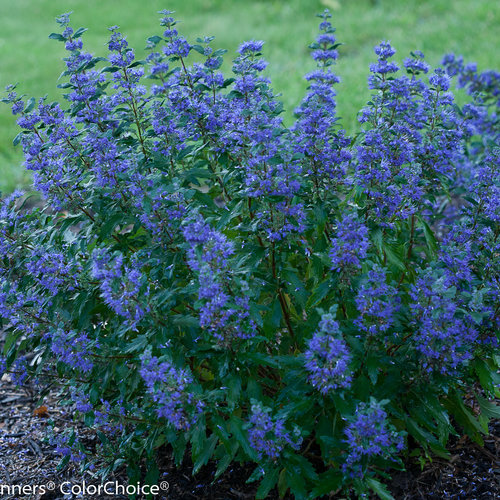
| Blossom Color | Blue |
| Bloom Season | Summer, Fall |
| Exposure | Full Sun |
| Height | 24-30 in |
| Width | 24-30 in |
| Spacing | 24-36 in |
| Container Sizes | 28, QT |
| Hardiness Zones | 5, 6, 7, 8, 9 |
| Wildlife Attracted | Bees, Butterflies, Hummingbirds |
| Wildlife Deterred | Deer |
| Features | Dark, glossy foliage and rich blue flowers in a compact habit. It attracts bees, butterflies and hummingbirds while also being deer resistant. |
| Adaptable as a Houseplant | No |
| Bog Plant | No |
| Is Disease Resistant | No |
| Drought Tolerant | Yes |
| Edible | No |
| Erosion Control | No |
| Fragrant Flower | No |
| Fragrant Foilage | No |
| Heat Tolerant | Yes |
| Native to North America | No |
| Salt Tolerant | No |
| Succulent | No |
| Water Plant | No |
| Uses | Mixed borders; perennial gardens |
| Maintenance Notes | Caryopteris demands a sunny spot and very well-drained soil. Wet soils, particularly those that remain soggy during periods of cold weather, will cause root rot. For this reason, we recommend early season planting of caryopteris in zones 5 and 6. Caryopteris should be cut back every spring to ensure sturdy, dense growth. You may give it a light trim in late autumn, once it has gone dormant, to remove the old flowers and eliminate possible seed spread. However, do not cut into any thick, woody stems until new growth begins to emerge in spring. Then, cut the whole plant back to just above where large, healthy buds are emerging. |
